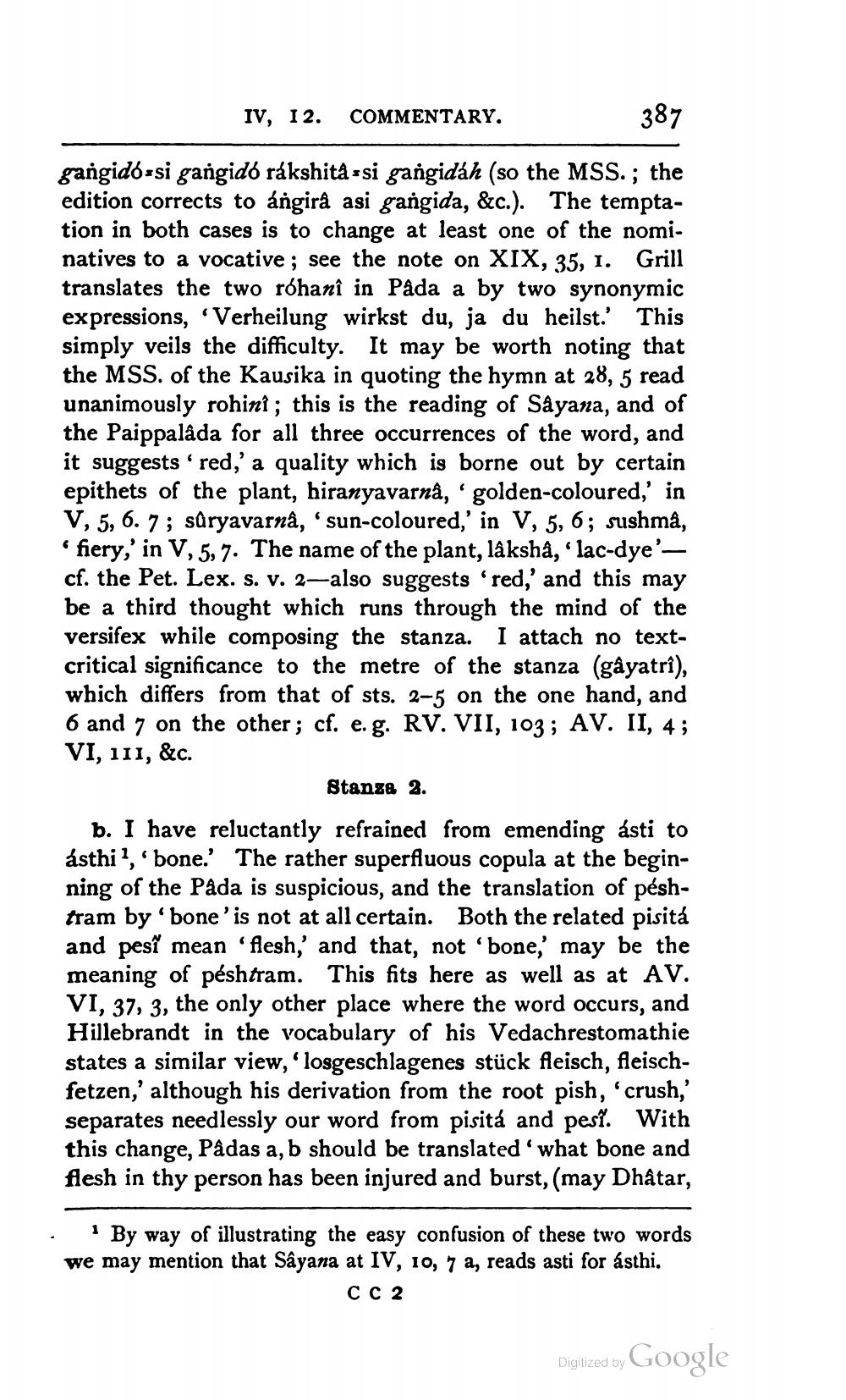________________
IV, 12. COMMENTARY.
387
gangidó si gangidó rákshita-si gangidáh (so the MSS.; the edition corrects to ángirâ asi gangida, &c.). The temptation in both cases is to change at least one of the nominatives to a vocative; see the note on XIX, 35, 1. Grill translates the two róhanî in Pâda a by two synonymic expressions, 'Verheilung wirkst du, ja du heilst.' This simply veils the difficulty. It may be worth noting that the MSS. of the Kausika in quoting the hymn at 28, 5 read unanimously rohinî; this is the reading of Sâyana, and of the Paippalâda for all three occurrences of the word, and it suggests' red,' a quality which is borne out by certain epithets of the plant, hiranyavarnâ, 'golden-coloured,' in V, 5, 6. 7; sûryavarnâ, 'sun-coloured,' in V, 5, 6; sushmâ, 'fiery,' in V, 5, 7. The name of the plant, lâkshâ, 'lac-dye'cf. the Pet. Lex. s. v. 2-also suggests 'red,' and this may be a third thought which runs through the mind of the versifex while composing the stanza. I attach no textcritical significance to the metre of the stanza (gâyatrî), which differs from that of sts. 2-5 on the one hand, and 6 and 7 on the other; cf. e. g. RV. VII, 103; AV. II, 4; VI, 111, &c.
Stanza 2.
b. I have reluctantly refrained from emending ásti to ásthi', 'bone.' The rather superfluous copula at the beginning of the Pâda is suspicious, and the translation of péshtram by 'bone' is not at all certain. Both the related pisitá and pest mean 'flesh,' and that, not 'bone,' may be the meaning of péshtram. This fits here as well as at AV. VI, 37, 3, the only other place where the word occurs, and Hillebrandt in the vocabulary of his Vedachrestomathie states a similar view, 'losgeschlagenes stück fleisch, fleischfetzen,' although his derivation from the root pish, 'crush,' separates needlessly our word from pisitá and pest. With this change, Pâdas a, b should be translated' what bone and flesh in thy person has been injured and burst, (may Dhâtar,
By way of illustrating the easy confusion of these two words we may mention that Sâyana at IV, 10, 7 a, reads asti for ásthi. CC 2
Digitized by
Google




